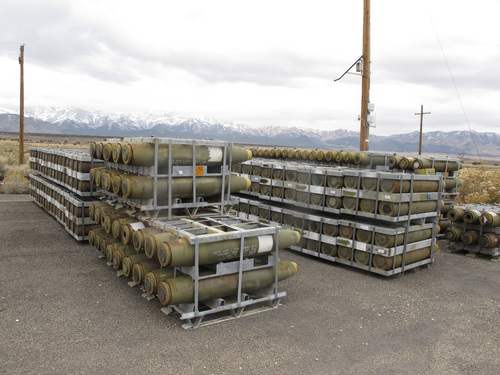This is an archived article that was published on sltrib.com in 2013, and information in the article may be outdated. It is provided only for personal research purposes and may not be reprinted.
After discovering a 17-ton cache of ordnance was at risk of self-ignition, the Tooele Army Depot detonated 28,000 target simulators over nine days this month, even on days when particulate pollution blanketed the Salt Lake Valley under a persistent inversion.
State officials granted the munitions depot an emergency permit to explode the simulators because some explosive material was found crystallizing on the outside of the packaging, according to Rick Page of the Utah Division of Solid and Hazardous Waste.
The discovery put public safety at odds with public health because the depot, just west of Tooele, could not wait for the inversion to lift, officials said.
The depot's normal permit bars it from detonating old ordnance and open burning on days when the "clearing index," a measure of atmospheric mixing, is low and conducive to pollution build up.
Parts of Tooele County are included in the Salt Lake airshed, which is out of compliance with federal standards for fine particulate and is currently saddled with unhealthy levels of air pollution.
"We are trying to balance the safety concerns so we are letting them [detonate] on those days," Page said. "This time of year you are limited on what days you can detonate material and they don't want that stuff lying around."
Indeed, the depot's Nov. 21 letter seeking emergency permission said the target simulators posed a serious menace.
"This has created a mass fire hazard and the potential for self propagation of other material," wrote Rodney Nybo, an environmental official at the depot.
"Due to the unstable nature of subject assets, they were placed outdoors to prevent loss of property or life and handling has been restricted to movement for destruction only."
State regulators granted permission immediately after receiving the letter and issued the emergency permit in writing on Tuesday, the day after the detonations were completed, according to depot spokeswoman Kathy Anderson.
Nybo's letter said operations would avoid days with cloud cover, precipitation or other weather conditions that exacerbate noise impacts. The timing of the operation was also constrained by the depot's Monday-through-Thursday work week.



